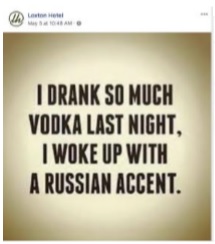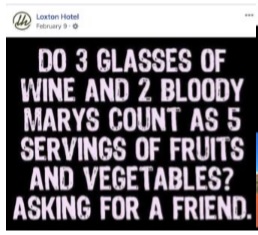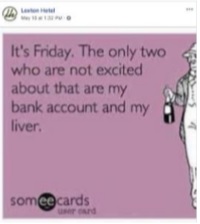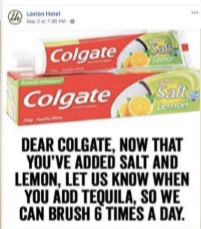
Social media target of ABAC's latest decision
Social media marketing is again in the spotlight after the alcohol advertising watchdog criticised South Australia’s Loxton Hotel over a series of Facebook posts.
A complaint against posts published by Loxton Hotel which accused it of promoting irresponsible or excessive consumption of alcohol was made on 29th May.
ABAC has upheld the complaint, saying that while “Australians have a robust sense of humour” and the attempted humour in the posts may have been“hackneyed” there was an underlying message about excessive drinking being common and acceptable.
The complaint stated that the Facebook posts promote black outs from drinking alcohol, replacing healthy foods with alcohol and making light of liver failure, amongst other complaints.
It said the business is in a rural area where people are “more vulnerable” to mental health problems and addiction, saying that Loxton Hotel was trying to make money “from addiction and misery”.
The Alcohol Beverages Advertising Code Scheme code states that marketing communications should not encourage the rapid or excessive consumption of alcohol, or encourage irresponsible or offensive behaviour related to drinking.
In a letter dated 11th June, Loxton Hotel responded saying it was not a signatory of the ABAC code. As such, it did not accept the decision as it was not required to comply with the code.
However despite the defiant response, Loxton Hotel removed all the offending marketing and said it would review its current marketing policies.
The ABAC adjudication panel upheld the complaint on 13th June in a statement on its website.
ABAC acknowledged that it was an opt in scheme, and the hotel was not obligated to make any changes as a result of its ruling.
However it did point out that hotels in South Australia, as in other states, are subject to state licencing regulations, in this case the Liquor Licence General Code of Practice guidelines which say that a ‘licensee must not promote, advertise, conduct or permit the conduct, promotion or advertisement of their business in a way that tends to encourage the rapid or excessive consumption of liquor’.
This rule is also codified in the ABAC scheme, and the watchdog says it alerts the relevant government authority if it is found that a breach of the code has been made which also breaks governmental guidelines.
ABAC acknowledged in its decision that while the scheme covers the whole alcohol industry, including major retailers such as BWS and Liquorland, not all relevant businesses have become formal signatories.
It said that the scheme operates within a self-regulatory commitment basis, but had “overwhelmingly” found that even non-signatories accept the need for good practice in alcohol marketing and cooperate with the adjudication process.
This was the case in last week’s ruling, in which ABAC upheld a complaint against Western Australian brewers Cheeky Monkey.







